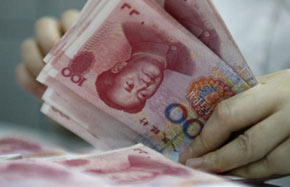'No systemic risk' from ongoing liquidity crunch
China's liquidity crunch won't pose systemic risks to the world's second-largest economy, but the central bank needs to rethink its policy, said analysts.
Willem Buiter, Citigroup Inc's chief economist, said recent cash tension is a "warning shot" from the People's Bank of China that it means to curb shadow banking activities instead of those of ordinary banks, which pose no systemic risk.
"But if you rely on a crunch (to target shadow banking), you'll succeed but with an economic recession," said Buiter.
Apart from an increase in funding costs, the government should introduce a policy mix involving increased market orientation for the banking sector and treat banks and shadow banking the same, Buiter said.
Shen Minggao, head of China research at Citigroup, said tight liquidity cannot be sustainable and the central bank should inject funds into the market before long. "A cut in the reserve requirement ratio cannot be ruled out."
The PBOC "should also work on improving its policy transparency, to better communicate with the market and guide investor expectations, otherwise it will lead to 'artificial' panic".
Analysts have said that the central bank's "punishment" of banks that fund investments in securities with funding from the interbank market will result in more prudent lending and liquidity management, which will hurt economic growth.
Citigroup has cut its forecast for China's GDP growth this year to 7.6 percent from the previous 7.8 percent. The rate will further ease to 7.3 percent in 2014, it said.
It is becoming clear that China's new economic leadership team is willing to accept some short-term pain for long-term gains, and the recent crunch in the interbank market is the most obvious evidence of the new stance, said Stephen Green, chief China economist at Standard Chartered Bank.
"China's current high interbank rates are the intended result of a PBOC campaign to force banks to better manage liquidity and deleverage from certain sectors.
"Comparisons with the Lehman-related freezing of interbank liquidity in the United States in 2008 are unhelpful. This is not a run on liquidity caused by a credit event. Instead, we believe it is a deliberate policy meant to de-risk the interbank system," he said.

























